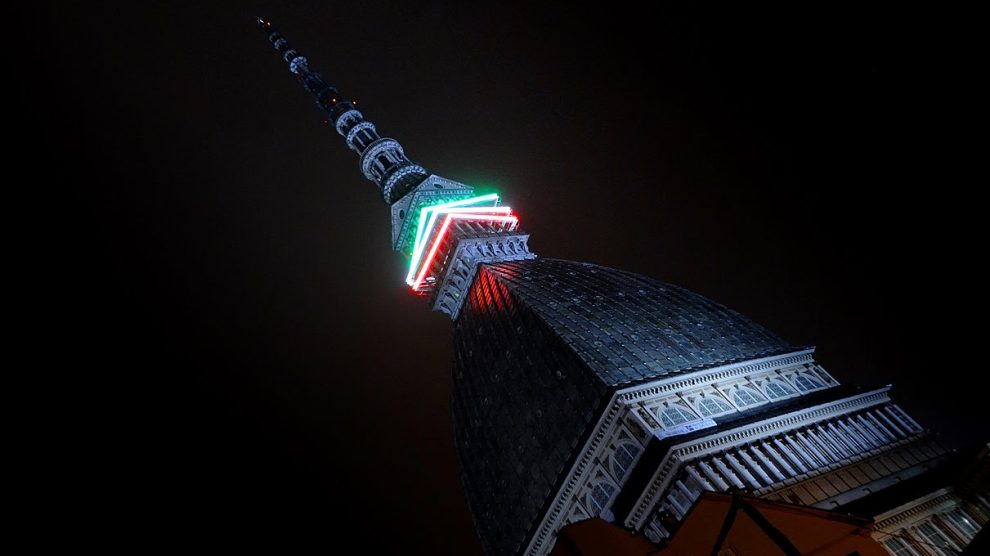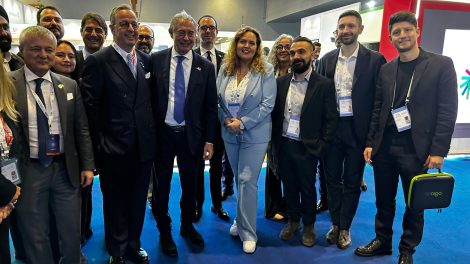The Aerospace City project kicked off on Tuesday morning with the laying of the foundation stone to build the Polytechnic University’s new laboratories in the Northern Italian city of Turn. The new space will host research activities and collaborations with companies in the aerospace sector, with the main research strands concerning hybrid-electric propulsion and generation and space exploration.
- The ultimate goal is to create a full-fledged aerospace ecosystem where the sectors of education, research, innovation and enterprise along the entire value chain may merge synergistically.
- The initial investment is €700 million, with the projected impact on GDP surpassing €750 million. Five thousand people will work in the new centre once it is completed.
Shoot for the moon (and the G-7). As announced by Enterprise Minister Adolfo Urso, Turin will host a G-7 summit on artificial intelligence, the digital economy and space in 2024, an acknowledgement of its increasingly relevant role in Italy’s tech frontier. “After the future of European launchers, we will dedicate ourselves to other sectors, such as the control of space debris, up to the human return to the Moon” in 2030, as he told La Stampa on Sunday.
The companies involved. Between now and 2028, the plan foresees the involvement of Italian aerospace titans Leonardo, Thales Alenia Space, Avio Aero and Altec. The first aims to develop the Innovation, Digital and GCAP Technology hubs, while the second intends to work on the Moon and Mars missions through a Large Element Integration and Test Centre, the third will work on future-proofed Clean Aviation propulsion systems and the fourth will set up a National Space Centre.
- The total investment of all these plans in the Aerospace City is expected to amount to about €EUR 1 billion.
Committing to the future. Luisa Riccardi, Deputy Secretary-General of Defence, saluted the birth of “a project of national importance, an ecosystem in which all the key institutions, start-ups, small enterprises and large companies are involved. Not just a physical place but a challenge and a commitment for the future. Turin, Piedmont and Italy will increasingly be a global reference centre in the space economy,” she claimed, noting that space tech is “essential” for sensitive issues such as climate change and national security.
A “flywheel” for the city. Turin’s Aerospace City “will be an international hub for attracting talent, for the development of frontier technologies and start-ups, and for the consolidation of Italy’s industrial heritage in the space sector,” commented Teodoro Valente, President of the Italian Space Agency. “In the next few years, the space economy will be one of the most important drivers, and this territory will be able to seize the opportunities,” he added, recalling that Italy’s related industry can boast 300 companies, 7,000 people and an annual turnover in excess of €2 billion.
- “We have 12 technological districts, more than 70 research and development nodes between universities and research bodies, so it is a good ecosystem,” he added.
Leonardo’s role. Announcing the upcoming February launch of the company’s next industrial plan, CEO Roberto Cingolani noted that space “will play an unprecedented role, with a great strengthening of activities, a great rationalisation of all product lines and all strategies.” The aircraft division will set up four research laboratories on campus, and there will “certainly be further development in the coming years,” he added.





